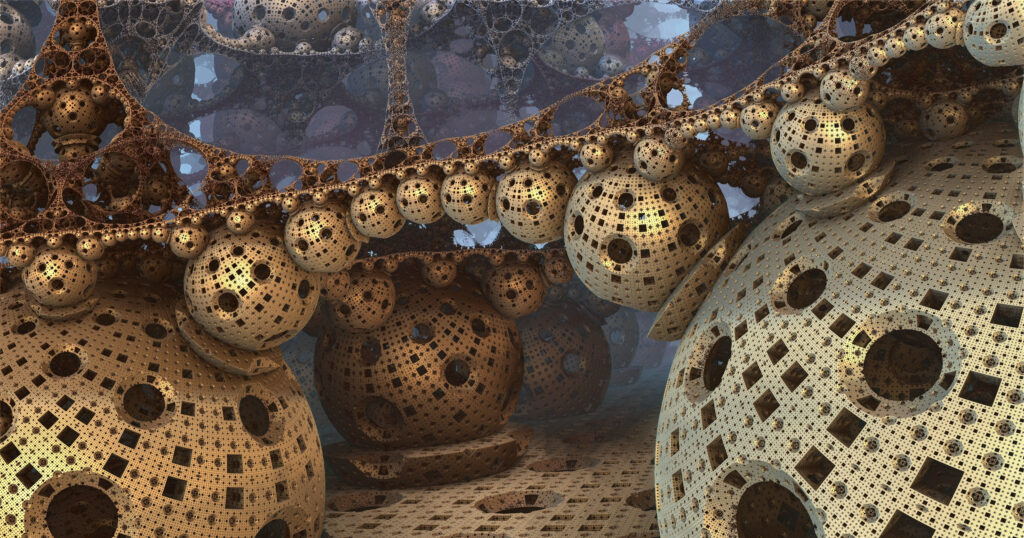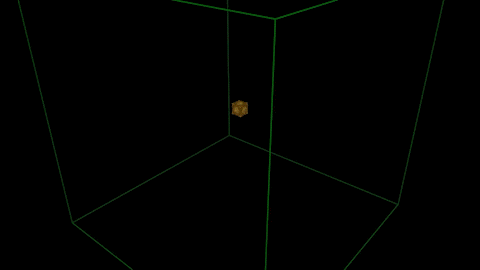Monotonous, Periodic, Fractal, Interesting, Chaotic
Does this mean the local universe will repeat? No, not precisely at least, or maybe a couple of times, but not forever. Because there is no perfect periodicity either. Another platonic idea.

If you look at the works of John Conway, Stephen Wolfram and others, there seem to be five classes of things: Monotonous, periodic, fractal, chaotic and…

And then there is also something very strange, like John Conway’s Game of Life, that sits in the middle between fractalness and chaos. Let’s call it “interesting“.

However, monotony and periodicity are the same, mathematically and logically, and both do not exist in reality. They are platonic. Pure randomness also doesn’t exist. The only currently usable sources of alleged randomness come from such real world objects, the physics of which we don’t understand well enough to predict.

(From “Two-dimensional pseudo-random coupled map lattices system based on partitioned elementary cellular automata
and its dynamic properties” by Dong Youheng, Zhao Geng and Ma Yingjie.)
Quantum physics (which is incomplete at best, plain wrong possibly, despite being our most precise theory of local small scale physics) assumes that there is something like pure randomness, but if that were the case, order starting at a scale that is just slightly larger should not exist.
What we see instead are almost perfect symmetries everywhere, and we have no way to explain how these could arise from randomness. And even worse, we also have a hard time explaining any randomness arising from the laws of quantum mechanics. To me this means, quantum mechanics is a way to describe these symmetries and derive or predict, but not to explain, despite all attempts.
Funny, right? Why? Maybe it is ALMOST, not total randomness underlying the quantum world. Pure random is another platonic idea. As you see, we keep confusing our theoretical models with the reality they intend to describe, a pattern we repeat when trying to explain our consciousness.
So, we are either in the regime of fractalness or of interestingness. However, fractalness is just a subset of interestingness. An interesting ruleset can produce all possible fractals, local monotony, local periodicity and even local randomness to the extent that is possible. Fractalness on the other hand can not give rise to that many other things, and is certainly not complex enough to explain most of the effects we see. Fractalness is however often behind what we interpret as periodicity.
READ ON: So “where” are we?
